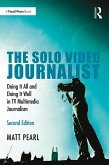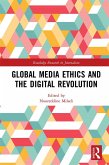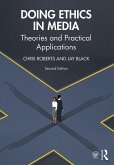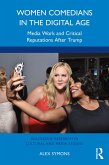Dieser Download kann aus rechtlichen Gründen nur mit Rechnungsadresse in A, B, BG, CY, CZ, D, DK, EW, E, FIN, F, GR, HR, H, IRL, I, LT, L, LR, M, NL, PL, P, R, S, SLO, SK ausgeliefert werden.
Michael Rabiger, author of Directing the Documentary
"...manages to provide some clarity to a subject shrouded in the murkiness of competing political agendas...The liberal use of case studies and real-life examples throughout the book is particularly effective. Each chapter ends with a summary of "Take-Home Points" and extensive bibliographies for additional reading. The real-life example on the final page is about the personal ramifications of "Twitter Shaming." This one lesson would qualify Think Point Shoot as recommended reading for teachers and parents dealing with all those thousands of kids running around with smartphones in their hands, making media."
Cynthia Close in Documentary Magazine









